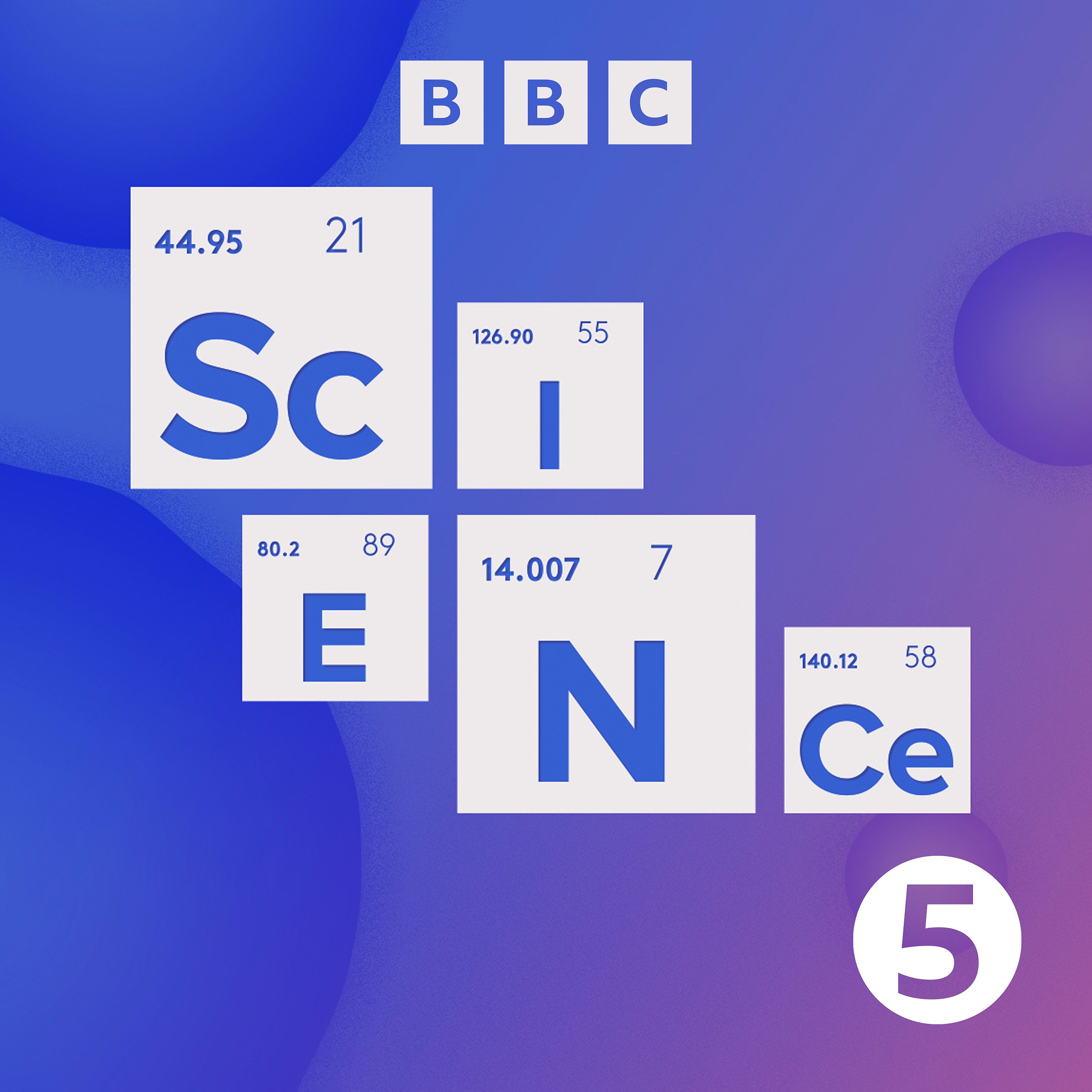

5 Live Science Podcast
BBC Radio 5 Live
5 Live's science podcast, featuring Dr Chris and Naked Scientists with the hottest science news stories and analysis.
Episodes
Mentioned books

Jan 13, 2019 • 50min
5 live Science
Dr. Chris Smith and the Naked Scientist team with the latest science news. This week including the intelligent material that helps wounds heal, a phone app which detects drug overdoses, and how norovirus makes us unwell. Plus a look at how the human body regenerates itself, and why we get scars.

Jan 10, 2019 • 42min
When legends collide: Rhod finally meets Dr Karl
After 15 years of broadcasting together, Rhod Sharp and Dr Karl finally meet face to face during a special tour of the Royal Institution in London.

Jan 6, 2019 • 50min
5 live Science
Dr. Chris Smith and the Naked Scientist team start the New Year with answers to more of your science questions.

Jan 3, 2019 • 49min
Dr Karl
Ultima Thule chat and why does it take meat longer to cool down than heat up? Also, is it true that pink salt is from the Himalayas?

Dec 27, 2018 • 49min
Dr Karl
Dr Karl answers your science questions

Dec 21, 2018 • 49min
5 live Science - Christmas Survival Guide
Dr. Chris Smith, Katie Haylor and the Naked Scientist team bring you a Christmas survival guide. Including the science of cooking the perfect turkey and roast potatoes, how much Christmas pudding would be enough to get you drunk, avoiding family festive feuds, and what makes the best worst cracker joke.

Dec 20, 2018 • 48min
Dr Karl
Science journalist, broadcaster and Up All Night regular Bianca Nogrady is joined by Professor of Astrophysics at Sydney University Geraint Lewis to answer your science and nature questions.

Dec 16, 2018 • 50min
5 live Science
Put on some safety goggles as Dr. Chris Smith and the Naked Scientist team ignite your bunsen burners with the hottest science news stories, analysis and breakthroughs. Get the podcast from the BBC Sounds app.

Dec 13, 2018 • 49min
Dr Karl
Dr Karl answers your space questions and explains why the Moon has a dark side, why space is cold and talks driverless cars.

Dec 9, 2018 • 1h 41min
5 live Science
Can we jet lag a cabbage? Does the surge in big internet data sharing bring big risks? Dr Chris Smith and the ‘Naked Scientists’ also discuss the microbial world and we go interstellar to infinity and beyond.


